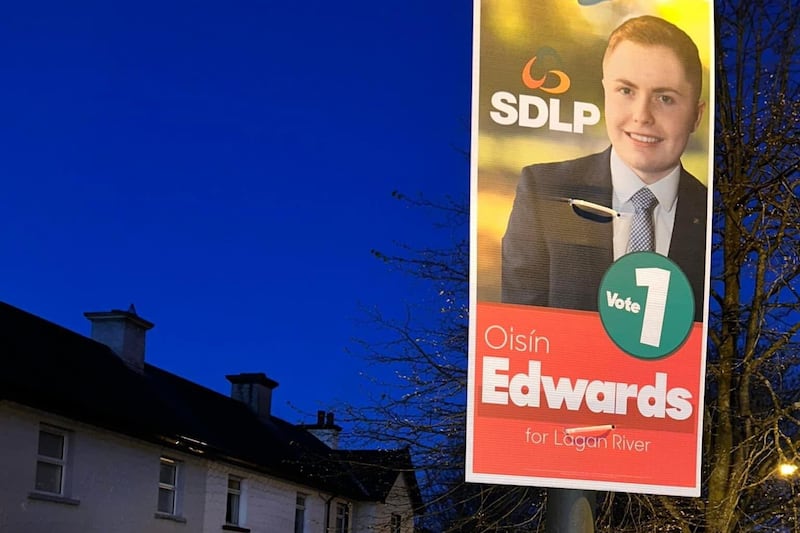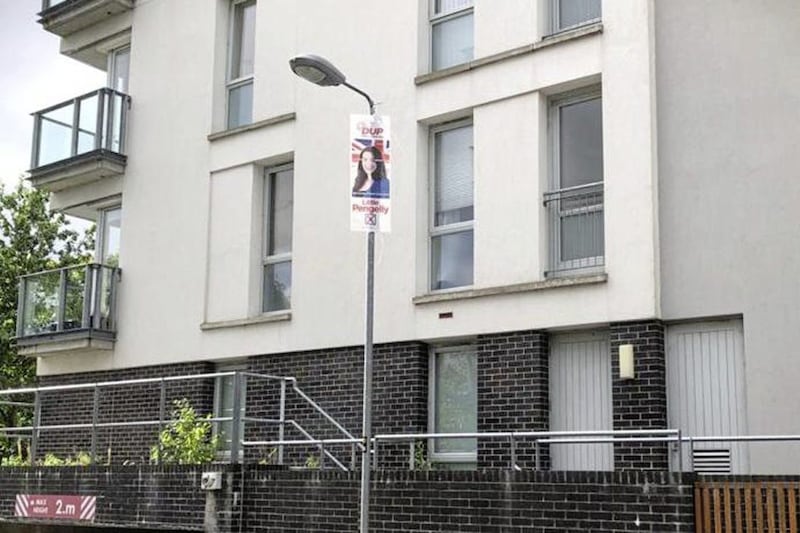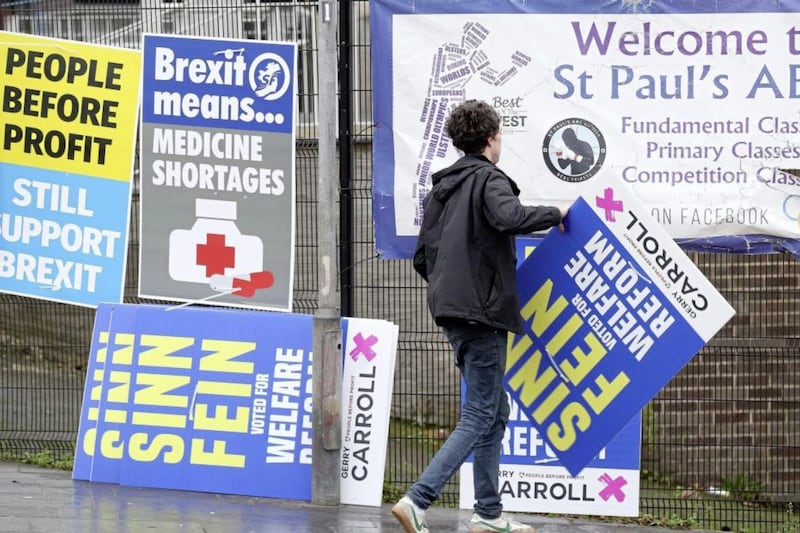IS there anything to be said for more election posters?
Placards have decorated lampposts across the north for more than a month, with some of the candidates’ faces now more familiar to me than my own.
The same arguments about plastic posters - the damage they do to the environment, their general ineffectiveness in changing voting patterns, their sheer ugliness - are trotted out during every election cycle. And in the north we have had more election cycles than most.
From a journalistic point of view at least, this assembly poll has seemed no nastier or more tribalistic than any other.
Westminster elections have arguably greater potential to bring out the “anyone but themmuns” voters, with pacts to prevent splits in the vote tending to foment more bitterness and division.
Battles for flashpoint constituencies including North Belfast and Fermanagh and South Tyrone have always appeared more personal, more pointed, in general elections, mainly because the system only allows for one winner and several losers.
Hyperbole around Thursday’s poll being the most important election in a generation ignores past duels, notably the 2003 battle which saw the late Ian Paisley and his DUP colleagues turn up at Ulster Unionist headquarters in their ‘Battle Bus’, with the ensuing row unfolding in front of TV cameras.
But there’s no doubt that this election has brought its own tensions. Endless anti-protocol rallies have given false hope to some unionists that they can somehow magically overturn an agreement struck by Prime Minister Boris Johnson.
The symbolism of a Sinn Féin first minister, while almost inevitable now, does still strike at the heart of unionists who cannot accept a transfer of power after more than a century in charge.
But tensions have remained just that. There has been no violence, only the usual threats and counter-threats from those masquerading as republicans or loyalists.
Some idiots have decided to vent their frustrations on election posters, with dozens being damaged, removed or destroyed.
No sooner had the first placards been put up than some were torn down.
So far, police have received 80 reports of posters being ripped or removed.
Come the Eleventh Night bonfires, or the now rare internment bonfires in August, most of these posters will re-emerge to decorate a pyre near you.
Officers have to investigate all reports made to them.
But surely the time has come again to question whether we need to have posters in the first place?
Has anyone’s mind really been changed by seeing the same placard five times on the same road? Working from home has meant that many of us have become much more aware of our immediate environment. If streets you walk around on your lunch break are also the streets where you live then there’s seemingly no escape from the election.
The posters themselves are frequently badly designed, with the name of the candidate not always large enough to be visible from the road.
A friend visiting me from England joked that half the placards look like bad school photos with candidates’ heads contorted into poses no one makes outside of a photography studio.
And there's the sheer number of them.
I often attend a yoga class on the first floor of a studio on a busy street. It’s fairly hard to concentrate on your downward dog when you’re overlooked by the giant looming faces of several candidates, whose posters jostle for position on the same lamppost. I’d thought that the placards were of a reasonable size from the street but, in Fr Dougal style, they were just far away.
A few years ago, Imagine! Belfast put up a series of fake posters around the city with slogans including ‘Vote for Me. Or Someone Just Like Me.’ and ‘Don’t Think. Just Vote.’
The festival said the posters were a “bit of devilment” aimed to generate debate about politics and why we vote.
The stunt felt like a welcome jolt after several years of depressing world politics, the Trump presidency and the Brexit vote.
Now, with the soaring cost of living uppermost in everyone's mind, tribal politics should be less important to voters struggling to heat their homes and buy food.
In an ideal world we'd all choose our representatives on how they can best help the poorest and most vulnerable.
Posters can tell us nothing about what our candidates really believe in. If anyone comes to your door in the next few days, ask them what they have to offer beyond the same old divisions.









